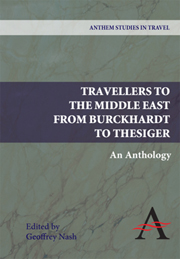Arabia
from PART TWO - COLONIALISM AND RESISTANCE 1880–1950
Published online by Cambridge University Press: 05 March 2012
Summary
Historical Background
Arabia entered the twentieth century still a relatively unknown, backward and inhospitable region. However the spread of the telegraph and railway enabled the Ottoman Empire to reassert its claim of sovereignty over parts of the peninsula. Construction of the Hijaz railway from Damascus to Medina (opened 1908) meant the Ottoman government was able to exercise ‘more direct control’ over the Sherif of Mecca and ‘restore its direct presence in Yemen’ (Hourani 1991: 280). In Central Arabia though, the pro-Ottoman Ibn Rashid were eclipsed by the rising Sultan Abdul Aziz ibn Saud, while British agreements entered into with rulers of the Gulf sheykhdoms at the end of the nineteenth century prevented Turkish expansion in that area.
Turkey's late decision to join the Axis powers on the eve of the First World War meant she would be fighting against her old ally Britain in the Middle East. Serious British reverses at Gallipoli and in Mesopotamia were offset by the Sherif of Mecca's decision to open up a front against Turkey in the Hijaz. The Arab Revolt (1916–1918) led eventually not only to the removal of the Turks from the Hijaz but also to the Arab tribes' conquest of Syria. However Arab nationalist aspirations were dashed when after the war, the Allies acted on the Sykes–Picot agreement and divided Greater Syria. French armies ejected Faysal's supporters from Damascus in 1920, while Faysal's father, the embittered King Husayn, who expecting to rule over a much larger swathe of Arab territory had declared himself ‘King of the Arabs’, was confined to the Hijaz.
- Type
- Chapter
- Information
- Travellers to the Middle EastAn Anthology, pp. 185 - 186Publisher: Anthem PressPrint publication year: 2009



